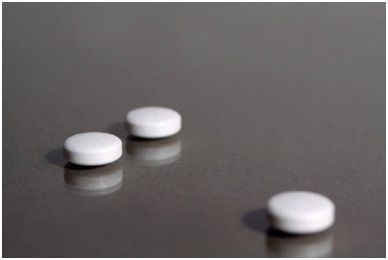Something I have been contemplating for a while finally became crystal clear last night. I could not wait to share.
 The placebo effect is fascinating. In clinical trials, participants are typically divided into two groups. One group is given active treatment, and another group is given treatment that looks like active treatment, but is really nothing (a sugar pill, injection of saline, etc…). A drug, or procedure is effective if it can outperform the placebo. It is accepted that patients can have real physical benefits occur from taking a placebo, if they believe it is the real treatment.
The placebo effect is fascinating. In clinical trials, participants are typically divided into two groups. One group is given active treatment, and another group is given treatment that looks like active treatment, but is really nothing (a sugar pill, injection of saline, etc…). A drug, or procedure is effective if it can outperform the placebo. It is accepted that patients can have real physical benefits occur from taking a placebo, if they believe it is the real treatment.
In one study, a group of osteoarthritis patients were given real arthroscopic surgery to clean out a damaged knee, at the same time a comparable group was given a placebo surgery (incisions, but nothing more). Neither the patients or study assessors knew which osteoarthritis patients got the actual surgery and which had the placebo. Fifty-percent of both groups, over the long term, received benefits. Their pain decreased and they were able to participate in activities they had not previously. As I said, fascinating!
According to this website the placebo effect is stronger when the patient expects benefit from the treatment they receive (even if it is just a sugar pill).
For decades the placebo effect has been used to prove the mind-body connection, and I’m on board! My stress level impacts my blood pressure, I feel tired when I’m worried, and focusing on my pain makes it worse.
Studies have shown that reducing stress is good for the immune system, focus, digestion, longevity, healing, and a host of other psychological and physiological benefits. Again, I’m on board! That’s why I spend time writing this website and why I have a book called Chronic Resilience.
Our minds are powerful, no doubt! Sorry…I know I’m being a bit long winded, but I’m a bit riled today.
The mind-body connection, and the placebo effect, is then taken a step further to become proof that you can heal yourself. There is a multi-million dollar industry teaching you to visualize, affirm and pray your way to spontaneous remission and miracles.
One of the key pieces in the study with the surgery participants is that they didn’t know which surgery they were getting. The ones who only got incisions still 100% believed they had actual work done on their knee.
The bottle with the sugar pill in it is labeled like and looks like the actual pill. It is easy to have an expectation of healing when someone else is convincing you that you are receiving healing treatment.
It is a different story when you know the pill is sugar and you’re told to believe it is real medicine. It is hard to have belief that strong. This isn’t to say it isn’t possible…that’s called faith, but there is a huge gap between the placebo effect and thinking your way to a cure. It’s not a 1-for-1 relationship like many gurus would have us believe.
This gap in the philosophy is glossed over with statements like,”become that know,” “believe,” “know without a doubt.”
Buying into the placebo as proof of our ability to heal ourselves with conscious thought can cause false hope and unnecessary guilt.
Just like it is hard to tickle yourself, it is hard to trick yourself into believing that you’re cured when you take medication, go to the doctors and cope with physical symptoms on a daily basis.
If you know the pill is sugar, how do you believe otherwise?
You need someone to do the trickery for you. Maybe I should start a service? Hummm…